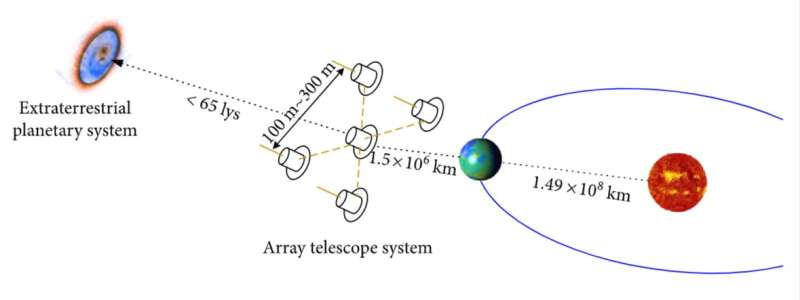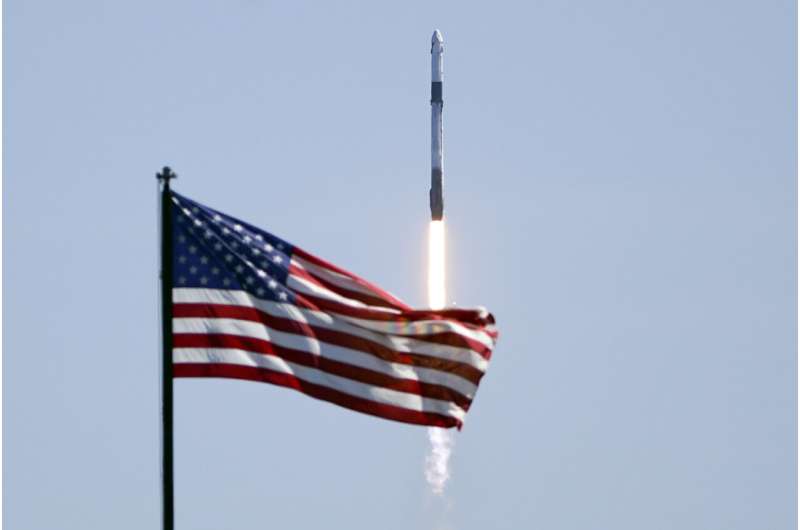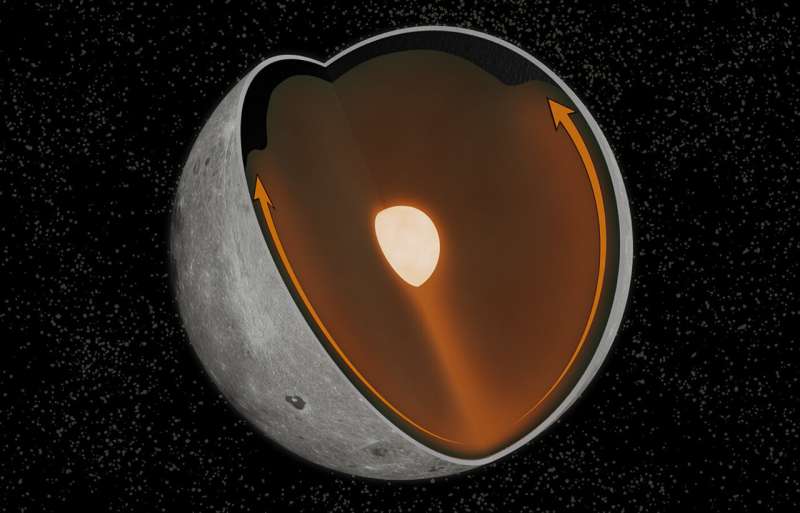
Copernical Team
A Beacon in the Galaxy: Updated Arecibo Message for Potential FAST and SETI Projects
 An updated, binary-coded message has been developed for transmission to extraterrestrial intelligences in the Milky Way galaxy. The proposed message includes basic mathematical and physical concepts to establish a universal means of communication followed by information on the biochemical composition of life on Earth, the Solar System's time-stamped position in the Milky Way relative to known gl
An updated, binary-coded message has been developed for transmission to extraterrestrial intelligences in the Milky Way galaxy. The proposed message includes basic mathematical and physical concepts to establish a universal means of communication followed by information on the biochemical composition of life on Earth, the Solar System's time-stamped position in the Milky Way relative to known gl Brazilian Space Chief Says Nations Should Think Long-Term, Keep Space Out of Geopolitics
 Countries should think long-term about space cooperation, as there are many things on which they could work together regardless of geopolitical tensions, Carlos Moura, the president of the Brazilian Space Agency, told Sputnik.
"I believe that, especially in space, we should think long term cooperation, scientific cooperation," Moura said on the sidelines of the Space Symposium. "There are
Countries should think long-term about space cooperation, as there are many things on which they could work together regardless of geopolitical tensions, Carlos Moura, the president of the Brazilian Space Agency, told Sputnik.
"I believe that, especially in space, we should think long term cooperation, scientific cooperation," Moura said on the sidelines of the Space Symposium. "There are ISRO likely to launch seven satellites during current year: Govt
 The Indian Space Research Organisation (ISRO) is likely to launch seven satellites during the current year and the expenditure towards the realisation of satellites is nearly Rs 490 crore, the Parliament was informed on Wednesday.
"ISRO has successfully launched the Earth Observation Satellite EOS-4 onboard PSLV-C52 on February 14, 2022 from Satish Dhawan Space Centre, Sriharikota, along w
The Indian Space Research Organisation (ISRO) is likely to launch seven satellites during the current year and the expenditure towards the realisation of satellites is nearly Rs 490 crore, the Parliament was informed on Wednesday.
"ISRO has successfully launched the Earth Observation Satellite EOS-4 onboard PSLV-C52 on February 14, 2022 from Satish Dhawan Space Centre, Sriharikota, along w SpaceX launches first private astronaut mission to ISS
 With its 13th launch of the year on Friday, SpaceX will make history, sending the first private crew of astronauts to the International Space Station for a week to conduct dozens of science experiments.
The Ax-1 mission is scheduled to lift off at 11:17 a.m. EDT on a previously flown Falcon 9 rocket that will launch from Pad 39A at NASA's Kennedy Space Center in Florida.
The miss
With its 13th launch of the year on Friday, SpaceX will make history, sending the first private crew of astronauts to the International Space Station for a week to conduct dozens of science experiments.
The Ax-1 mission is scheduled to lift off at 11:17 a.m. EDT on a previously flown Falcon 9 rocket that will launch from Pad 39A at NASA's Kennedy Space Center in Florida.
The miss Space tourism: the arguments in favor
 To its many detractors, space tourism amounts to nothing more than joy-rides for the global super rich that will worsen the planet's climate crisis.
But the nascent sector also has supporters, who, while not rejecting the criticism outright, argue the industry can bring humanity benefits too.
- More research opportunities -
The first argument is that private spaceflights, in additio
To its many detractors, space tourism amounts to nothing more than joy-rides for the global super rich that will worsen the planet's climate crisis.
But the nascent sector also has supporters, who, while not rejecting the criticism outright, argue the industry can bring humanity benefits too.
- More research opportunities -
The first argument is that private spaceflights, in additio Mission design of an aperture-synthetic interferometer system for space-based exoplanet exploration

The search for extraterrestrial life and exploration of "another Earth" is an eternal theme for humans and inspires generations of planetary scientists. It not only improves our understanding of the formation and evolution of planets during the formation of a star system but also helps scientists to investigate the possible conditions and criteria of the existence of life. In the past 30 years, scientists have discovered more than 4,000 exoplanets, but exploration still has a long way to go.
Due to the far distance, searching for exoplanets requires high sensitivity and high resolution.
SpaceX launches 3 visitors to space station for $55M each

SpaceX launched three rich businessmen and their astronaut escort to the International Space Station on Friday for more than a week's stay, as NASA joins Russia in hosting guests at the world's most expensive tourist destination.
It's SpaceX's first private charter flight to the orbiting lab after two years of carrying astronauts there for NASA.
Arriving at the space station Saturday are an American, a Canadian and an Israeli who run investment, real estate and other companies. They're paying $55 million apiece for the rocket ride and accommodations, all meals included.
Russia has been hosting tourists at the space station—and before that the Mir station—for decades.
Differences between the Moon's near and far sides linked to colossal ancient impact

The face that the Moon shows to Earth looks far different from the one it hides on its far side. The nearside is dominated by the lunar mare—the vast, dark-colored remnants of ancient lava flows. The crater-pocked far side, on the other hand, is virtually devoid of large-scale mare features.
Ride into orbit secured for Sentinel-1C

A contract signed with Arianespace secures the launch for the third Copernicus Sentinel-1 satellite. Scheduled to lift off on ESA’s new Vega-C rocket from Europe’s Spaceport in French Guiana in the first half of 2023, Sentinel-1C will continue the critical task of delivering key radar imagery for a wide range of services, applications and science – all of which benefit society.
Watch live: media Q&A with Samantha Cristoforetti

Tune in this Monday 11 April from 15:00-16:30 CEST (13:00-14:30 GMT) for a conversation between ESA astronaut Samantha Cristoforetti and media in Europe live on ESA Web TV.

